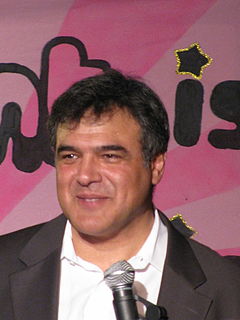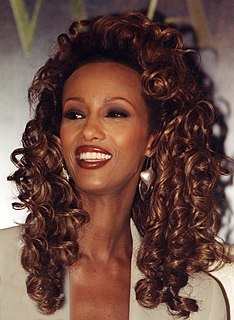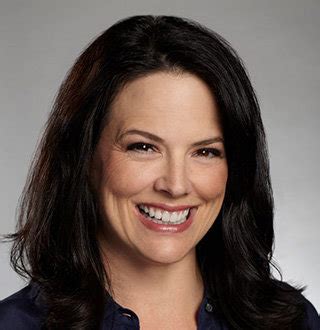A Quote by Thomas Cahill
Is is seldom possible to say of the medievals that they *always* did one thing and *never* another; they were marvelously inconsistent.
Related Quotes
You said, 'I love you.' Why is it that the most unoriginal thing we can say to one another is still the thing we long to hear? 'I love you' is always a quotation. You did not say it first and neither did I, yet when you say it and when I say it we speak like savages who have found three words and worship them. I did worship them but now I am alone on a rock hewn out of my own body.
The bottom feeders of the entertainment industry were never invited to presidential inaugurations. The bottom feeders of the entertainment were never used as fundraisers for presidents of the United States. They were ignored. There was always a line. They were always there, and they were always who they were, and they always did what they did. The bottom feeders have now become the standard. That's what's different.
All through first and second and third hour, Eleanor rubbed her palm. Nothing happened. How could it be possible that there were that many never ending all in one place? And were they always there, or did they just flip on wherever they felt like it? Because, if they were always there, how did she manage to turn doorknobs without fainting? Maybe this was why so many people said it felt better to drive a stick shift.
I've never heard a White House staff say that the president was too stupid or too ill-informed to have broken the law. And that's really what it comes down to. The truth is, he leaked highly classified information that he shouldn't have leaked. It's one thing to say, "Hey, I'm the president. Nobody can punish me for that." It's another thing entirely to just deny that he did it. We know that he did it. And he really ought to own up to it.
One thing my mother always instilled in me is to always know my worth. Don't settle for less. She used to say to me 'Iman, no is a complete sentence, learn to say no. You don't have to explain it you don't have to say anything after it. It's a complete sentence.' So when I came to America 1975, I found out that the black models were being paid less than white models. So the first thing I did was say I'm not going to do the job unless I'm paid the same amount.
There's never the right last moment. Even if you get to say good-bye, even if you get to say "I love you", even if you jump off a plane and get a tattoo and hug everyone you've ever met right before you drift off with a smile, it is never the right last moment. There is always more to say, somewhere to go, something to remember. Another discussion, another fight. There is always supposed to be another day.
He was one of those people who made you feel like they either didn't know or didn't care that you were in the room and if they ever did acknowledge your existence it was bizarrely score one to you, and twenty years later they'd tell you they'd always had a crush on you but never had the courage to say anything and you'd tell them, What? I didn't even think you liked me? and they'd say, Are you crazy? I just never knew what to say!
My father and I were always on the most distant terms when I was a boy--a sort of armed neutrality, so to speak. At irregular intervals this neutrality was broken, and suffering ensued; but I will be candid enough to say that the breaking and the suffering were always divided up with strict impartiality between us--which is to say, my father did the breaking, and I did the suffering.
Another thing I've observed is how critical the role of the CEO is when a technology truly is disruptive. In looking back on companies that have successfully launched independent disruptive business units, the CEO always had a foot in both camps. Never have they succeeded when they spin something off in order to get it off the CEO's agenda. The CEOs that did this had extraordinary personal self-confidence, and almost always they were the founders of the companies.





































